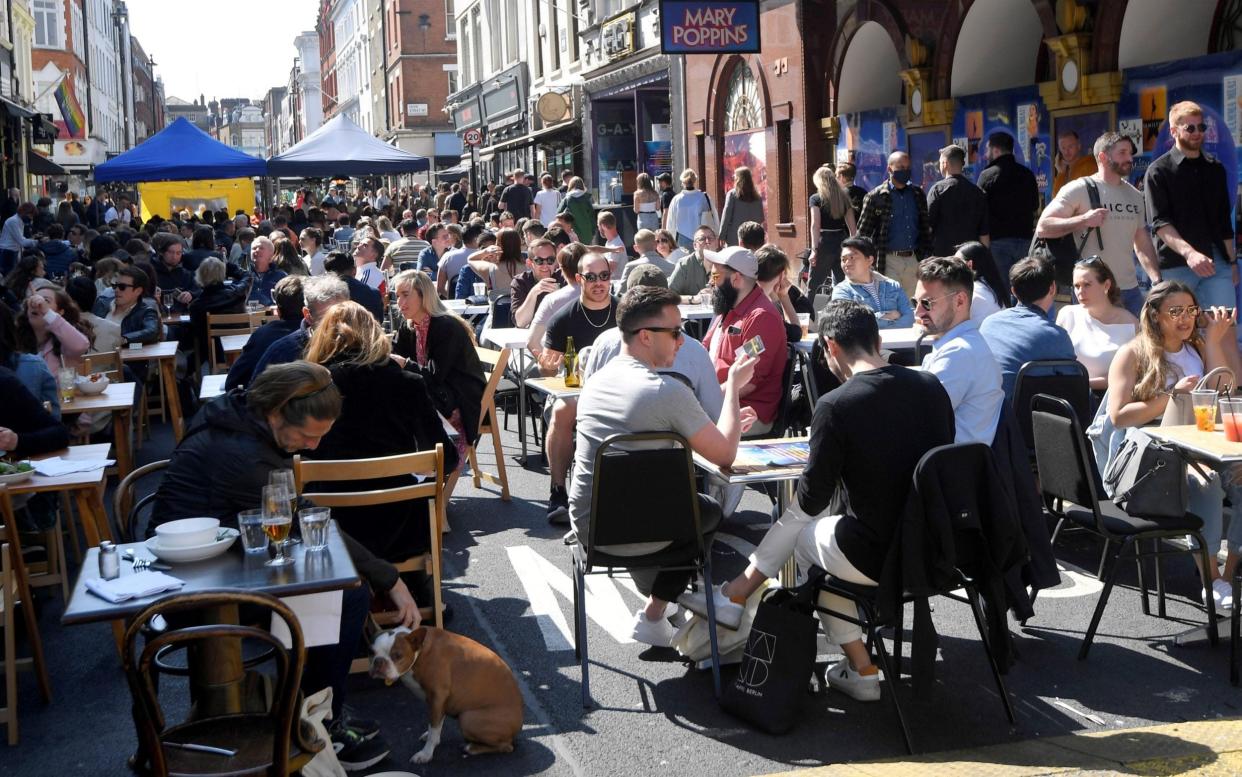Strangers drinking alcohol together move closer every three minutes

Strangers who drink alcohol together move closer by approximately 1cm every three minutes, scientists have found in a study that could show how pubs may have helped spread Covid.
Last autumn, the Government introduced a 10pm curfew for pubs, arguing that people would become less likely to follow social distancing guidelines as they became inebriated – and the study suggests there may be some truth in that claim.
Researchers from the University of Illinois filmed 212 young volunteers as they drank with friends and strangers to see how they acted as they became increasingly intoxicated.
They found friends tended to draw closer to one another whether or not they consumed alcohol, but participants interacting with a stranger only moved closer to that individual if they were intoxicated.
“The physical distance between these pairs decreased by about 1cm per three-minute interval,” said Catharine Fairbairn, a professor of psychology.
Those who drank non-alcoholic beverages with strangers did not draw significantly closer to one another during the experiment, the team found.
“This study shows that, over time, alcohol reduces physical distance between people who are not previously acquainted,” said Laura Gurrieri, a researcher in psychology.
“This finding is particularly important in the context of the Covid-19 pandemic because it suggests that alcohol might facilitate virus transmission and impede the following of social distancing guidelines.”
Prof Fairbairn said the movement happened even though participants’ ability to move closer was somewhat curtailed as they sat across from one another at a table and the study was conducted in a quiet, spacious laboratory rather than a bar.
“Folks would likely draw even closer to one another in a crowded bar with loud music when compared with our laboratory environment,” she added. “That would have to be the subject of another study.”
Under new government guidelines, pubs no longer need to adhere to the 10pm curfew.
A Sage report from September said that curfews were likely to have a “marginal impact” although they warned that there had been limited research on the matter, and said their findings were “low confidence”.
At the time, the Department of Health and Social Care said the 10pm closure allowed people to continue to socialise while reducing the risk of failing to socially distance.
But the move was heavily criticised after leading to crowded streets and public transport when the pubs closed early at 10pm. Critics also argued that it would force people to break the rules further by continuing their night indoors at the homes of friends.

